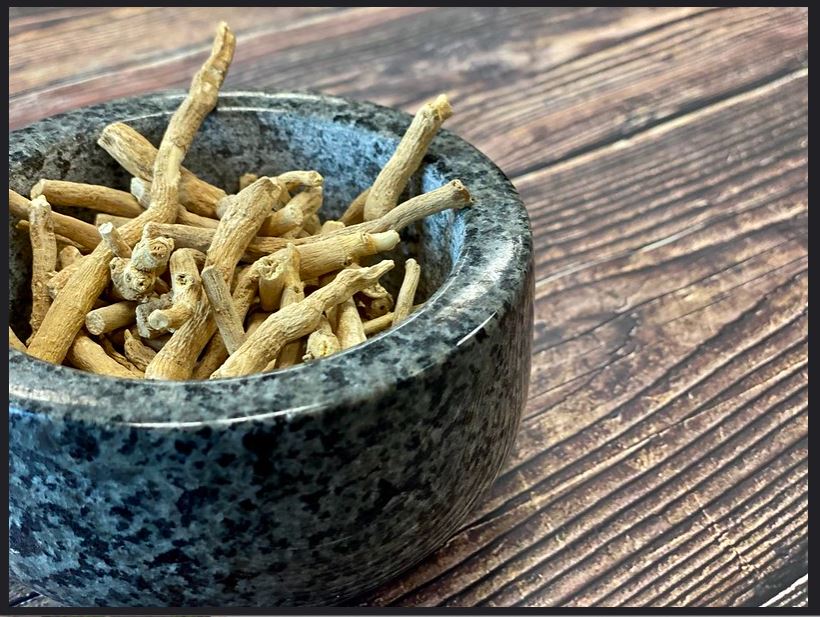Ashwagandha: The Miracle Herb of Ayurveda

Introduction to Ashwagandha
Ashwagandha, scientifically known as Withania somnifera, is an ancient herb that holds a revered place in traditional Indian medicine, Ayurveda. Also referred to as Indian ginseng or winter cherry, Ashwagandha has gained widespread popularity in recent years due to its myriad of health benefits and adaptogenic properties.
Historical Background
With a history spanning over 3,000 years, Ashwagandha has been deeply ingrained in Indian culture and medicine. It was traditionally used to promote longevity, vitality, and overall well-being. The term “Ashwagandha” itself translates to “smell of horse,” symbolizing the herb’s supposed ability to impart the strength and vitality of a horse to its user.

Botanical Description
Ashwagandha is a small shrub with yellow flowers and red fruit, native to the dry regions of India, the Middle East, and parts of Africa. Its roots and orange-red berries are the primary parts used for medicinal purposes.
Active Compounds in Ashwagandha
The bioactive compounds in Ashwagandha responsible for its therapeutic effects include alkaloids, steroidal lactones (withanolides), saponins, and flavonoids. These compounds contribute to its anti-inflammatory, antioxidant, and immune-modulating properties.
Health Benefits of Ashwagandha
- Stress Reduction: Ashwagandha is renowned for its ability to combat stress and anxiety by regulating cortisol levels and promoting relaxation.
- Improving Immunity: It enhances the body’s natural defense mechanisms, thereby bolstering immunity and reducing the risk of infections.
- Enhancing Cognitive Function: Ashwagandha has been shown to improve cognitive function, memory, and focus, making it beneficial for individuals experiencing cognitive decline or mental fatigue.
- Managing Anxiety and Depression: Its adaptogenic properties help alleviate symptoms of anxiety and depression by stabilizing mood and reducing oxidative stress.

Uses in Ayurveda
In Ayurvedic medicine, Ashwagandha is used to treat a wide range of ailments, including arthritis, insomnia, infertility, and respiratory disorders. It is often prescribed in combination with other herbs to enhance its therapeutic effects.
Modern Research and Studies
Contemporary research supports many of the traditional uses of Ashwagandha and has also uncovered new potential applications. Studies have demonstrated its efficacy in improving physical performance, reducing inflammation, and even combating certain types of cancer.
Forms of Ashwagandha
Ashwagandha is available in various forms, including powders, capsules, extracts, and teas. Each form offers unique benefits and allows for convenient consumption according to individual preferences.
How to Take Ashwagandha
The recommended dosage of Ashwagandha depends on various factors such as age, health status, and the specific condition being treated. It is advisable to consult a healthcare professional to determine the appropriate dosage and form for your needs.
Potential Side Effects
While Ashwagandha is generally considered safe for most people when taken in recommended doses, some individuals may experience mild side effects such as stomach upset, diarrhea, or allergic reactions. Pregnant and breastfeeding women should avoid its use, and caution is advised for individuals with autoimmune conditions.
Ashwagandha in Daily Life
Many people incorporate Ashwagandha into their daily routine to promote overall health and well-being. Whether taken as a supplement or brewed into a soothing tea, its adaptogenic properties offer support for the body and mind in today’s fast-paced world.
Popular Ashwagandha Products
The market is flooded with a plethora of Ashwagandha products, ranging from organic supplements to wellness beverages. It’s essential to choose high-quality, reputable brands to ensure purity and efficacy.
Ashwagandha’s Role in Fitness
Athletes and fitness enthusiasts are increasingly turning to Ashwagandha to improve endurance, strength, and recovery. Its ability to reduce exercise-induced muscle damage and inflammation makes it a valuable addition to pre- and post-workout routines.
Consumer Reviews and Testimonials
Many individuals swear by the benefits of Ashwagandha, citing improvements in energy levels, stress management, and overall vitality. However, it’s essential to approach anecdotal evidence with caution and prioritize scientific research when evaluating its effectiveness.
Conclusion
In conclusion, Ashwagandha stands as a testament to the power of nature in promoting health and wellness. With its rich historical legacy and growing body of scientific evidence, this ancient herb continues to captivate the interest of researchers, healthcare professionals, and consumers alike. Whether seeking relief from stress, bolstering immunity, or enhancing cognitive function, Ashwagandha offers a natural solution backed by centuries of tradition and modern research.

Is Ashwagandha safe for long-term use?
Ashwagandha is generally safe for long-term use when taken in recommended doses. Seeking advice from a qualified healthcare provider is recommended for tailored recommendations that suit your individual needs.
Can Ashwagandha help with insomnia?
Yes, Ashwagandha has been shown to improve sleep quality and may help alleviate symptoms of insomnia.
Is Ashwagandha suitable for children?
It’s best to consult a pediatrician before giving Ashwagandha to children, as dosages may need to be adjusted based on age and weight.
Does Ashwagandha interact with medications?
Ashwagandha may interact with certain medications, especially sedatives and immunosuppressants. Consult with a healthcare provider if you’re taking any medications.
Can Ashwagandha be taken during pregnancy?
Pregnant women should avoid Ashwagandha due to the lack of safety data. It’s best to err on the side of caution and refrain from its use during pregnancy.
How long does it take to experience the benefits of Ashwagandha?
The onset of Ashwagandha’s effects may vary from person to person. Some individuals report noticing improvements in stress levels and energy within a few weeks of consistent use, while others may require more time.
Is Ashwagandha suitable for vegetarians and vegans?
Yes, Ashwagandha supplements are typically plant-based and suitable for vegetarians and vegans. However, it’s essential to check the product label for any additional ingredients or capsules made from animal-derived sources.
Can Ashwagandha be used to treat specific medical conditions?
While Ashwagandha shows promise in alleviating symptoms associated with various health conditions, it is not intended to diagnose, treat, cure, or prevent any disease. Always consult with a healthcare professional before using Ashwagandha as part of a treatment plan for specific medical conditions.
What is the best time of day to take Ashwagandha?
The best time to take Ashwagandha may vary depending on individual preferences and goals. Some people prefer taking it in the morning to kickstart their day and manage stress levels, while others find it more beneficial as a nighttime supplement to promote relaxation and improve sleep quality.
Are there any dietary restrictions when taking Ashwagandha?
There are no specific dietary restrictions associated with Ashwagandha consumption. However, it’s essential to maintain a balanced diet and healthy lifestyle to maximize its benefits. Avoiding excessive alcohol consumption and incorporating other stress-reducing practices such as regular exercise and meditation can complement the effects of Ashwagandha.

Leave a Reply